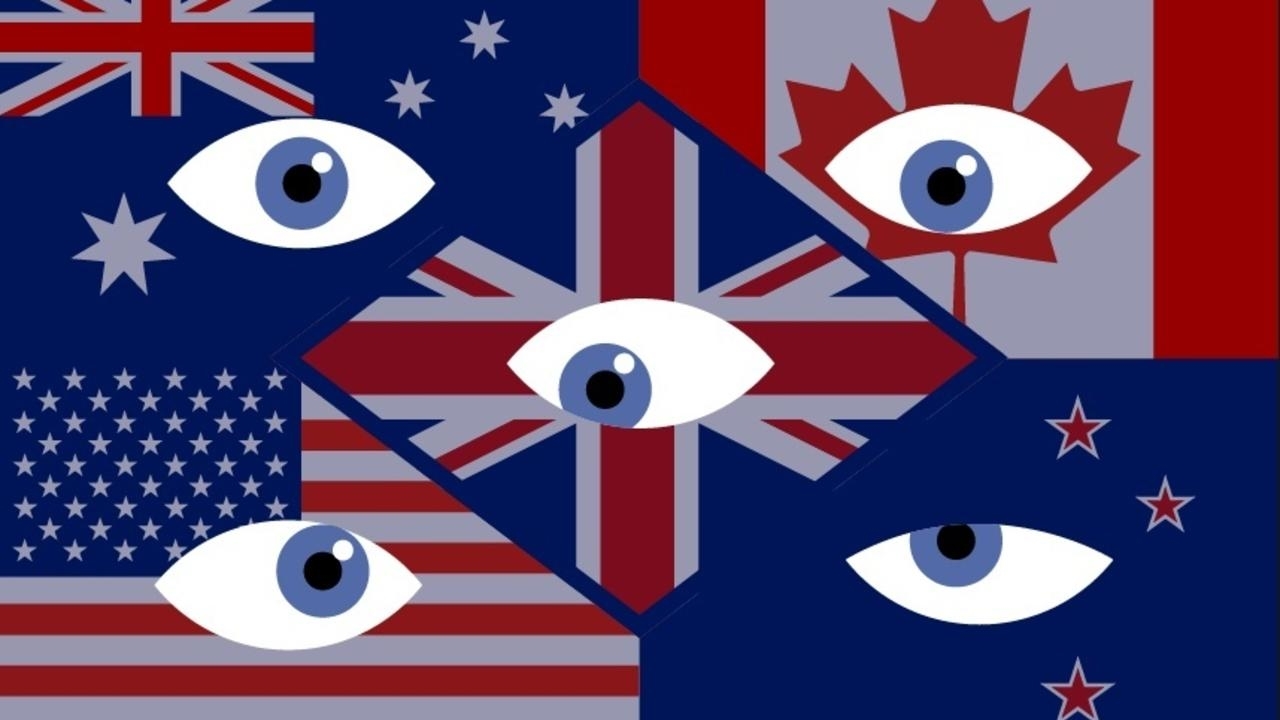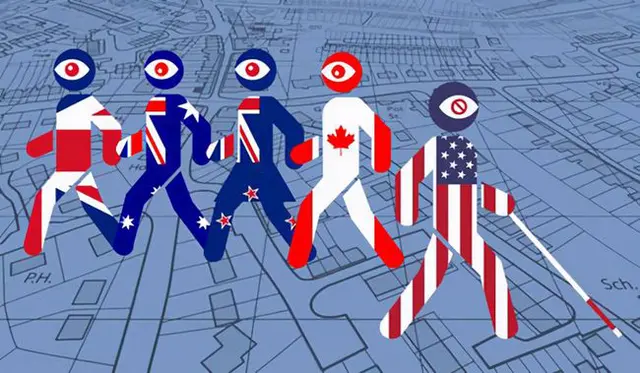Editor's Note:
The writer, Mr. I. Hussain Janjua is a senior media professional and analyst having experience of research & broadcast journalism in different organisations. He is a non-resident fellow of Chengdu Institute of World Affairs (CIWA). (Email: [email protected]; twitter: @ihussainjanjua)
The Five Eyes Alliance is an intelligence sharing agreement between five English-speaking countries - the United States, Britain, Canada, Australia and New Zealand.
It began as a mechanism for monitoring the Soviet Union during the Cold War and exchanging classified intelligence. It is often called the most successful intelligence alliance in the world. But the alliance has suffered severe embarrassment recently.
Last year, officials of the Five Eyes Alliance coalition understood that since the five countries have the same global views on a wide scale, they would apply to China as well. In May 2020, the coalition agreed to enhance the role of the coalition in public on respect for human rights and democracy, in addition to security and intelligence issues.
The Alliance members sans New Zealand are critical of China over situation in Xinjiang province, South China Sea, Hong Kong and Taiwan; an embarrassment for the Alliance.
The upset stems from a statement by New Zealand’s relatively new foreign minister Nanaia Mahuta, who said earlier this week that she did not want her country’s complex relationship with China to be defined by Five Eyes. She suggested that New Zealand needed to “maintain and respect” China’s “particular customs, traditions and values”.

At a joint press conference with her Australian counterpart Marise Payne she was more explicit still. Mahuta said: “The Five Eyes arrangement is about a security and intelligence framework. It’s not necessary, all the time on every issue, to invoke Five Eyes as your first port of call in terms of creating a coalition of support around particular issues in the human rights space.”
Payne acknowledged that New Zealand had the right to determine its own response to human rights issues, but made the case for speaking out: “We also have to acknowledge that China’s outlook – the nature of China’s external engagement both in our region and globally – has changed in recent years.”
While Jacinda Ardern, the New Zealand prime minister from the centre-left Labour party, has offended devotees of the Anglosphere by indicating she is not prepared to take her country into the kind of trade war with China that Australia has found itself facing.
The dispute on how to handle China, and through which institutions, has been rumbling for some time. In January the New Zealand minister, Damien O’Connor, suggested Australia follow his example and show China a little more respect, adding that a little diplomacy from time to time did not go amiss. Now Jacinda Ardern and the Australian Prime Minister, Scott Morrison, are reportedly going to meet in New Zealand in two weeks to discuss the issue.
New Zealand, like Australia, trades heavily with China, with 29 per cent of its export revenue dependent on China. It has been New Zealand’s biggest trading partner since 2017. New Zealand has signed a free trade deal with China, and over the past few months opted out of joining Five Eyes declarations condemning China over Uyghur minority issue.
Now, six months later, New Zealand's departure from the party line on China meant that its position seemed to hinder its attempt to spread the role of Five Eyes, raising questions about whether the alliance was in trouble.
Though New Zealand is not leaving the alliance, it is only making a difference between the two things. Against the backdrop of this alliance, this new effort had moved far beyond the role of Five Eyez which was actually an exchange of secrets.
(ASIA PACIFIC DAILY)
 简体中文
简体中文







